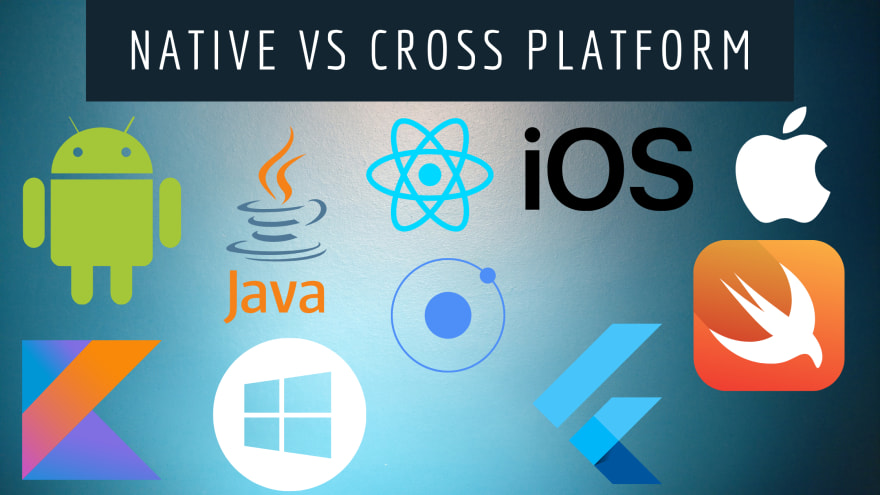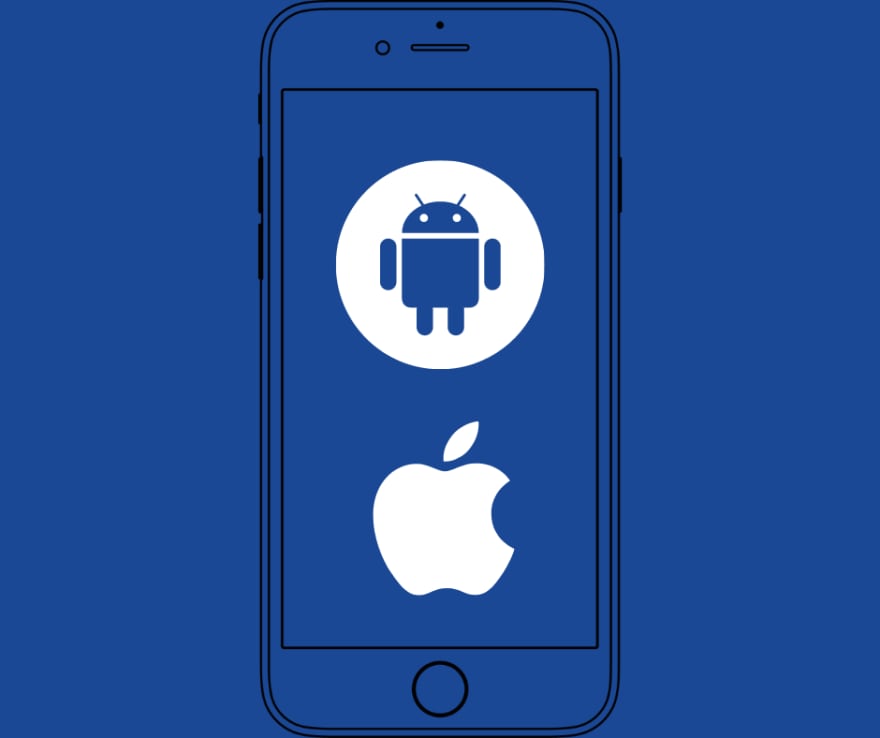What should you choose? Or What should you consider while mobile app development? What should you consider for developing your apps? Native or Cross Platform?
Well let's get straight to the point for which you have come here. 👉
I will be giving a very diplomatic answer to start off with, that both the platforms or development techniques are equally good and important. Both have their own pros and cons about which I will be discussing in the article further. I will be giving you a brief about both the platforms and then leave it to you to decide which app development method suits you best whether it is for learning perspective or job perspective.
📱 Native :
As the name suggests itself, Native App development is the native or we can say the traditional way of developing apps. It is based on the native operating system of the device on which the app is going to run. For example - for iOS/iPhone there is the programming language called objective-C and swift on the other hand for Android there is the programming language called Java and Kotlin.
Pros of Native App Development -
- All the Native apps use the same programming language as their operating system so they perform better, have faster performance and are very stable.
- If there is a use-case where you need to squeeze out all the particular special features of an operating system then you need to develop it on Native, because Native provides the option to fully utilize all the capabilities of that particular operating system through your app.
- Researching your app audience and building according to it enhances the user experience of the app. If the majority of your app audience is using Android smartphones then making it natively using Android Studio with Java and Kotlin makes a whole lot more sense rather than creating it on a Cross Platform framework.
Side Note - These native frameworks are directly supported by the operating systems teams with the likes of Apple and Google, so they are mostly bug-free and get more functionalities.
Cons of Native App Development -
- The biggest con of Native App Development is the cost ( when talking on a bigger business scale ). The cost of creating an App natively once for iOS and once for Android is very high and clearly not a suitable option.
- Moreover the development time also increases when we develop native apps, because there are so many new features and updates to try and include in the app.
👾 Cross Platform :
As the name suggests cross platform means a framework capable enough to create an app which runs on multiple platforms that could be Android, iOS, Windows etc. The entire codebase of the app remains the same despite the change in the platform. Popular cross platform frameworks include - Flutter, Xamarin, React Native, Ionic etc.
Pros of Cross Platform App Development -
- The biggest con of the Native App Development is the time constraint and the cost of updation, which inversely is the biggest pro of Cross Platform. The cost of updating the app and putting in more features at the same time for multiple platforms is very minimal.
- As there is a single codebase for the entire application therefore the development time of these apps are faster and require only few people to work on it. This advantage makes it more suitable for big companies which are looking to enhance their business quickly across multiple mobile platforms.
- If there is a use case where the app is on a limited budget and the complexity of the app is not very high then Cross Platform is the way to go.
Cons of Cross Platform App Development -
- The biggest con of Cross Platform is the User Experience. Cross Platform tools currently provide a moderate to average user experience because they are only able to replicate some basic functionalities and User Interface of the Native thing.
- Further keeping in mind which functionality or feature runs on which platform and which does not is a tedious task, this leads to harder implementation of functions and sometimes sluggish performances.
- In a use-case scenario where the app is complex and requires various features of the operating system to work then it is often better to use the Native rather than the Cross Platform.
Side Note - In the current state of affairs the apps made by Cross Platform frameworks have a buggy experience and may have some less features in it, but with increase in technological developments and updation in tools this will be resolved.
Taking Flutter for example which is backed up by Google, it is constantly getting feature updates every month making it a first choice while developing apps.
My Verdict - 👇
Personally speaking I would choose Cross Platform!
Yes you read it right Cross Platform it is and the reason why I choose Cross Platform over Native is because it provides you with better options and opportunities. Let me explain it to you, we are not living in 2017’s where it was a thing of discussion to choose between Native and Cross Platform. Most of the companies and app developers are going towards Cross Platform because we have got many enhancements in the tech industry and updated cross platform development tools, which are doing better than some of the native platforms tools. The companies nowadays if not demand but they do expect you to know how to work on Cross Platforms tools and sooner or later they will demand it too.
In my personal opinion Cross Platform is the next big thing and it will be one the biggest paradigm shifts in the Mobile app development industry.
Do let me know what you people think by commenting down below and correcting me if I am wrong somewhere. 😇
NOTE - This article was originally written for the official magazine for DSC VIT Bhopal, "DSCZine".











Latest comments (1)
Nice projects bro!
Which Java frameworks are you using to create those cross platform projects?